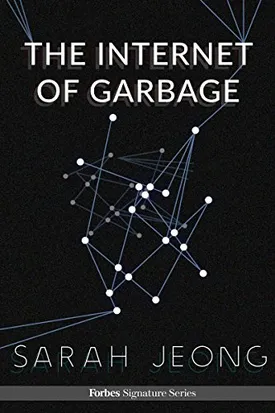The Internet of Garbage by Sarah Jeong
The Internet of Garbage by Sarah Jeong is a scathing analysis of how unchecked racism and sexism on the internet can be damaging both to individuals and the collective. Jeong reveals how some of the core aspects of our digital world – anonymity, trolls, encryption, AI, and surveillance capitalism – foster toxic attitudes and hate speech which can have deep and far-reaching repercussions in our everyday lives. This book is essential reading for anyone who uses the internet and wants to understand how to responsibly use this new technology.
In The Internet of Garbage, Sarah Jeong documents the many forms of racism, sexism, and harassment that are enabled by discriminatory policies, technologies, and practices online. She examines how online hate speech can have offline consequences and discusses how algorithms, bots, and artificial intelligence (AI) are being used to amplify the voices of trolls. She also highlights how encryption is increasingly being used by governments for clandestine surveillance and how large corporations are profiting off this data.
Sarah Jeong goes on to show how online misogyny, racism, sexism, and homophobia have become pervasive enough to manifest in tangible harms. She analyzes how surveillance and anonymity are used to restrict free speech and free market, how harassers manipulate technology by proxy, how hate speech and disinformation spread rampantly. In the book’s final chapter, Jeong dives into how these issues can be addressed through litigation, regulation, and policy – and identifies five practical steps individuals can take to help foster an internet of respect.
The Internet of Garbage offers a remarkable, albeit bleak, view of the world of the internet. Jeong examines not only the darker sides of the internet, but also the ways in which technology can play an important and constructive role in fostering a more tolerant, equitable, and educated digital culture. From the impact of social media and gaming to the implications of AI and automation in content, the book is a riveting exploration of how technology is impacting our lives in both positive and negative ways.
Ultimately, The Internet of Garbage is both a warning about the potential harms of the internet and a call for us to be more mindful of what sort of content we are consuming and creating online. The book is a timely reminder of our collective responsibility to use technology responsibly and build an online community dedicated to respect and inclusion. Though the internet may be filled with garbage, Jeong’s book offers an optimistic outlook of a more hospitable digital future.

